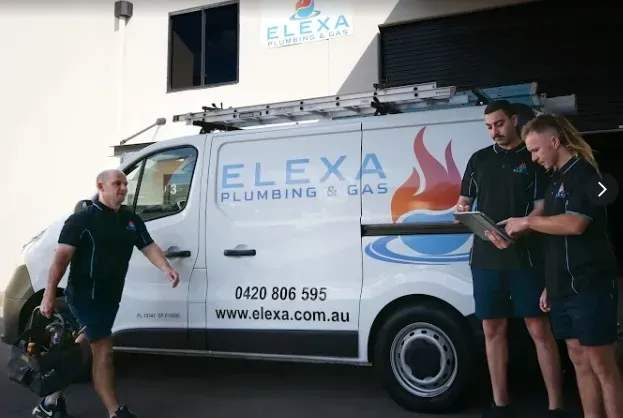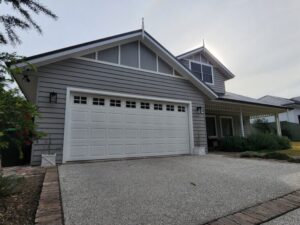
PC-Elexa Plumbing & Gas
Imagine this: it’s 2 AM. A pipe bursts. Water is spraying everywhere. Your heart is pounding. Who do you call? Knowing when to call a professional, especially in an emergency, is crucial for every homeowner. When faced with such a situation, finding a reliable residential plumber for your home can be a lifesaver. But how do you know when it’s truly an emergency that requires immediate attention versus a problem you can tackle yourself (or wait until morning)?
This article will explore the scenarios where calling a residential plumber is not just a good idea, but an absolute necessity. From burst pipes to gas leaks, we’ll cover the critical situations that demand the expertise and swift action of a qualified plumbing professional. We’ll also touch on preventative measures you can take to minimise the risk of plumbing emergencies in the first place. After all, a little prevention can save you a whole lot of stress (and money!) down the line.
Recognising a Plumbing Emergency: What Qualifies?
Not all plumbing issues are created equal. A dripping tap, while annoying, isn’t usually an emergency. But how do you distinguish between a minor inconvenience and a full-blown crisis? Here are some key indicators that warrant an immediate call to a residential plumbing expert:
Burst Pipes: A Waterfall Indoors
A burst pipe is perhaps the most obvious plumbing emergency. The sheer volume of water gushing out can cause significant damage to your property in a very short time. Whether it’s due to freezing temperatures, corrosion, or accidental damage, a burst pipe requires immediate attention. The first step is to turn off your main water supply to minimise the damage, followed by a call to a qualified plumber who specialises in residential plumbing services to repair or replace the damaged section of pipe. Delaying action can lead to extensive water damage, mould growth, and costly repairs.
Severe Leaks: Water Where It Shouldn’t Be
While a burst pipe is dramatic, even smaller leaks can escalate into emergencies if left unattended. Water leaking behind walls, under floors, or from ceilings can indicate a serious problem with your plumbing system. These leaks can rot timber, damage plasterboard, and create a breeding ground for mould, posing a health hazard to your family. If you notice unexplained dampness, water stains, or a musty odour, it’s time to call a professional to investigate and repair the leak before it causes further damage.
Blocked Drains: When the Water Won’t Go Down
A blocked drain can be more than just an inconvenience; it can lead to overflowing toilets, backed-up sinks, and even sewage spills. While a plunger might resolve minor blockages, persistent or severe drain blockages often indicate a deeper problem within your drainage system. Tree roots, collapsed pipes, or accumulated debris can all cause significant blockages that require professional attention. Ignoring a blocked drain can lead to unsanitary conditions, foul odours, and potential health risks. Professional plumbers have the tools and expertise to diagnose and clear even the most stubborn blockages safely and effectively. Sometimes they will need to use a residential gas plumber to ensure the hot water system doesn’t get damaged.
No Hot Water: A Cold Shower Catastrophe
While a cold shower might be refreshing on a hot summer day, it’s less appealing in the middle of winter. A sudden loss of hot water can indicate a problem with your hot water system, such as a faulty thermostat, a broken heating element, or a gas leak. If you suspect a gas leak, it’s crucial to evacuate your home immediately and call a qualified gas plumber. Even if it’s not a gas leak, a malfunctioning hot water system can disrupt your daily routine and require professional repair or replacement. A reliable residential plumbing service can diagnose the problem and restore your hot water supply quickly and efficiently.
Sewer Backups: A Truly Unpleasant Scenario
A sewer backup is arguably the most unpleasant plumbing emergency you can experience. Raw sewage overflowing into your home is not only disgusting but also poses a serious health hazard. Sewer backups can be caused by blocked sewer lines, damaged pipes, or problems with the municipal sewer system. If you experience a sewer backup, it’s essential to avoid contact with the sewage and call a professional plumber immediately. They can clear the blockage, repair the damaged pipes, and sanitise the affected area to prevent the spread of disease.
Preventative Plumbing: Stopping Problems Before They Start
While you can’t prevent every plumbing emergency, there are several steps you can take to minimise the risk and protect your home. Regular maintenance, careful usage, and prompt attention to minor issues can all help prevent costly and disruptive plumbing problems.
Regular Inspections: Catching Problems Early
Just like your car needs regular servicing, your plumbing system benefits from periodic inspections by a qualified plumber. A professional can identify potential problems, such as corroded pipes, leaking fittings, or faulty valves, before they escalate into emergencies. Regular inspections can also help you maintain the efficiency of your plumbing system, saving you money on water bills and preventing costly repairs down the line.
Careful Usage: Avoiding Common Mistakes
Many plumbing problems are caused by simple mistakes, such as flushing inappropriate items down the toilet, pouring grease down the drain, or overloading your garbage disposal. Avoid flushing anything other than toilet paper and human waste. Dispose of grease in the bin, not down the drain. And be mindful of what you put down your garbage disposal to prevent blockages. Simple changes in your habits can significantly reduce the risk of plumbing problems.
Prompt Repairs: Addressing Minor Issues Quickly
Don’t ignore minor plumbing issues, such as dripping taps, running toilets, or slow drains. These seemingly small problems can waste water, damage your plumbing system, and eventually lead to more significant and costly repairs. Addressing minor issues promptly can save you money in the long run and prevent them from escalating into emergencies. If you’re not comfortable tackling the repairs yourself, call a professional plumber to take care of them for you.
Finding the Right Residential Plumber: What to Look For
When faced with a plumbing emergency, choosing the right plumber is crucial. You need someone who is experienced, reliable, and available to respond quickly. Here are some key factors to consider when selecting a residential plumbing service:
Licensing and Insurance: Ensuring Professionalism and Protection
Always choose a licensed and insured plumber. Licensing ensures that the plumber has met the required standards of training and expertise. Insurance protects you from liability in case of accidents or damage to your property. Don’t hesitate to ask for proof of licensing and insurance before hiring a plumber.
Experience and Expertise: Handling a Variety of Problems
Look for a plumber with extensive experience in residential plumbing. They should be familiar with a wide range of plumbing systems and be able to diagnose and repair a variety of problems. Ask about their experience with similar issues to yours to ensure they have the expertise to handle your specific needs.
Availability and Response Time: Getting Help When You Need It
In an emergency, you need a plumber who can respond quickly. Choose a plumbing service that offers 24/7 emergency service and can dispatch a plumber to your home promptly. Ask about their average response time and ensure they have the resources to handle your emergency efficiently.
Reputation and Reviews: Checking What Others Say
Before hiring a plumber, check their reputation and reviews online. Look for testimonials from previous customers and see what they have to say about their experience. A reputable plumber will have positive reviews and a track record of providing excellent service. Online reviews can provide valuable insights into the plumber’s reliability, professionalism, and quality of work.
Conclusion: Peace of Mind for Your Home
Plumbing emergencies can be stressful and disruptive, but knowing when to call a professional residential plumber can make all the difference. By recognising the signs of a plumbing emergency, taking preventative measures, and choosing the right plumber, you can protect your home and family from costly damage and inconvenience. Remember, when in doubt, it’s always best to err on the side of caution and call a professional. A reliable residential plumbing service provides peace of mind, knowing that you have someone to turn to when things go wrong.



